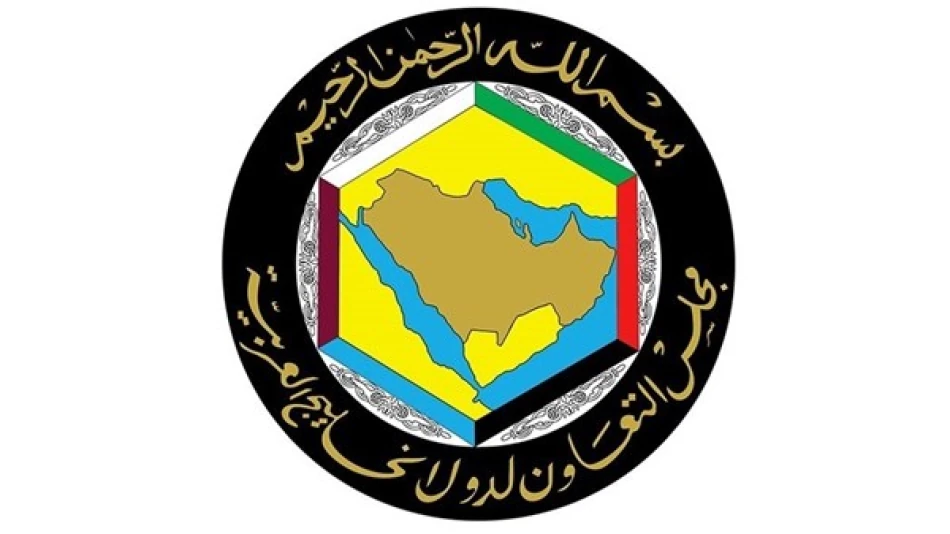
Gulf Defense Council Condemns Israeli Aggression on Qatar, Approves Measures to Bolster Defense Integration
Gulf States Rally Behind Qatar After Israeli Military Strike, Accelerate Joint Defense Integration
The Gulf Cooperation Council has condemned what it calls a "serious Israeli military aggression" against Qatar, triggering an emergency defense summit that produced concrete steps toward deeper military integration among the six-nation bloc. The extraordinary session in Doha resulted in accelerated intelligence sharing, joint air defense exercises, and updated collective defense plans—marking a significant shift in Gulf security coordination at a time when regional tensions are escalating.
Collective Defense Doctrine Put to the Test
The GCC Joint Defense Council's emergency meeting represented the first major test of the organization's collective security principles since its founding four decades ago. Defense ministers from all six Gulf states unanimously agreed that "any attack on Qatar is an attack on all GCC states," invoking Article 5-style language reminiscent of NATO's mutual defense clause.
This response demonstrates how regional security dynamics have evolved since the 2017-2021 Qatar blockade, when GCC unity fractured over diplomatic disputes. The current crisis appears to have galvanized the bloc around external threats rather than internal disagreements.
Immediate Military Measures Signal Serious Intent
Intelligence and Early Warning Systems
The council approved several concrete measures that go beyond typical diplomatic condemnations. These include enhanced intelligence sharing through the GCC's unified military command and real-time air situation awareness across all member states' operations centers. Most significantly, they accelerated work on a joint ballistic missile early warning system—a capability that could prove crucial given the region's missile threat environment.
Joint Exercises and Operational Coordination
Within three months, the Gulf states will conduct joint air operations and air defense exercises, followed by actual flight training operations. This timeline suggests urgency that contrasts with the typically slow pace of multilateral military coordination in the region.
Qatar's Mediator Role Adds Complexity
The timing of this alleged Israeli action is particularly significant given Qatar's prominent role in Gaza ceasefire negotiations and hostage release talks. GCC Secretary-General Jasim Mohammed Al-Budaiwi specifically noted that the attack threatens "diplomatic efforts and mediation carried out by Qatar" in the Gaza conflict.
This creates a strategic dilemma: Qatar has maintained relationships with various regional actors, including Hamas, precisely to serve as a neutral mediator. Any military escalation could compromise this carefully cultivated position and potentially derail ongoing diplomatic initiatives.
Regional Security Architecture Under Pressure
The Gulf states' response reflects broader concerns about regional stability as conflicts in Gaza, Lebanon, and other theaters threaten to expand. Unlike previous regional crises where Gulf states often pursued divergent policies, this incident appears to have produced genuine coordination.
The emphasis on "indivisible security" among GCC members suggests these nations recognize that isolated responses to security threats are insufficient in the current environment. This represents a maturation of Gulf security thinking, moving beyond bilateral defense relationships with external powers toward genuine multilateral capabilities.
Implications for Regional Balance
For regional observers, this development signals several important trends. First, the Gulf states are demonstrating renewed unity after years of internal divisions. Second, they're accelerating military integration in ways that could create more formidable collective defense capabilities.
The focus on ballistic missile defense and air operations suggests the GCC is preparing for scenarios involving longer-range threats, not just localized conflicts. This could influence regional military balance and potentially affect calculations by various actors across the Middle East.
The success of these joint defense measures will depend heavily on implementation. Previous GCC military cooperation initiatives have often stalled due to sovereignty concerns and operational challenges. However, the specific timeline and detailed nature of the announced measures suggest more serious commitment than typical diplomatic statements.
Most Viewed News

 Layla Al Mansoori
Layla Al Mansoori






